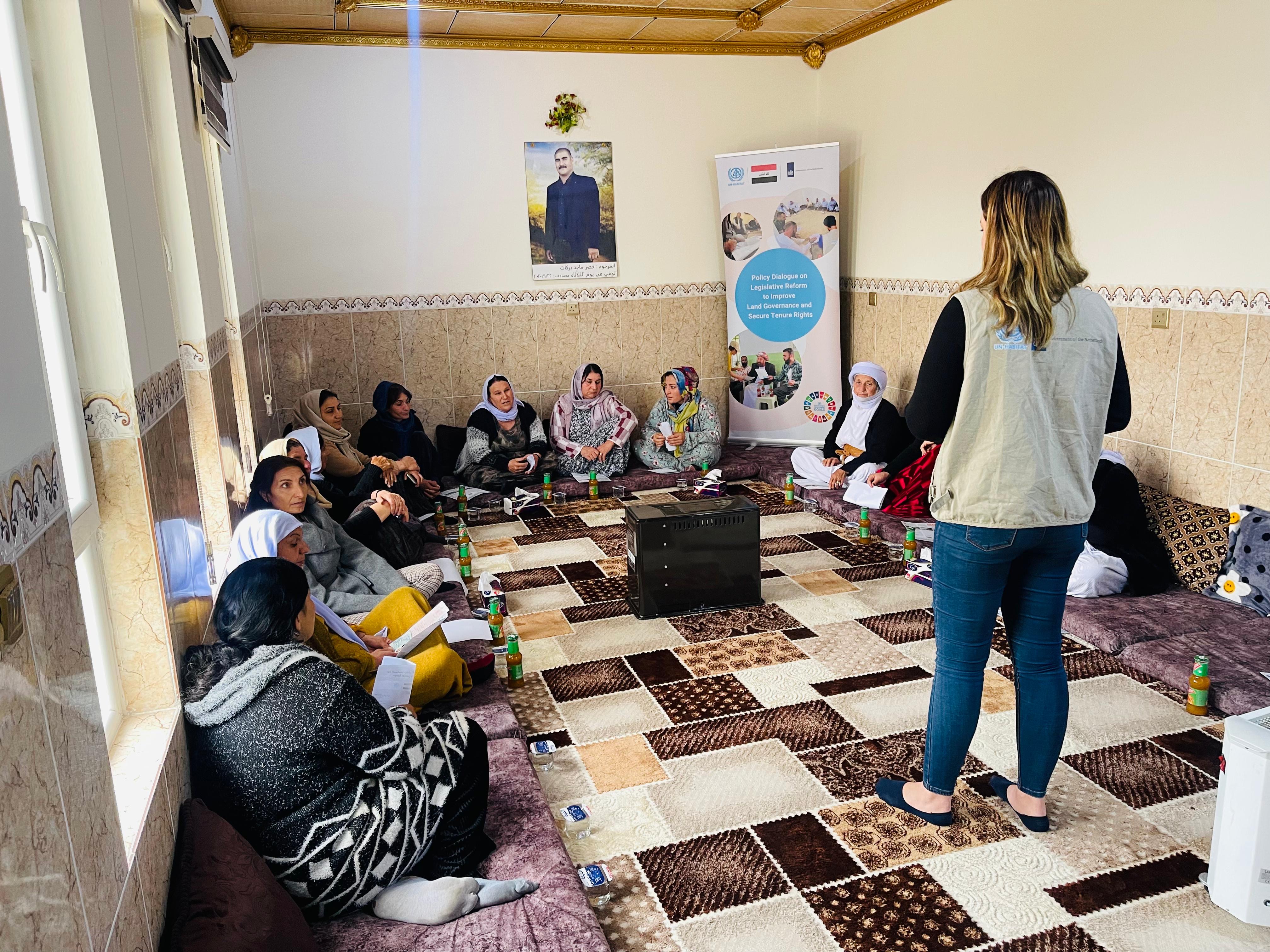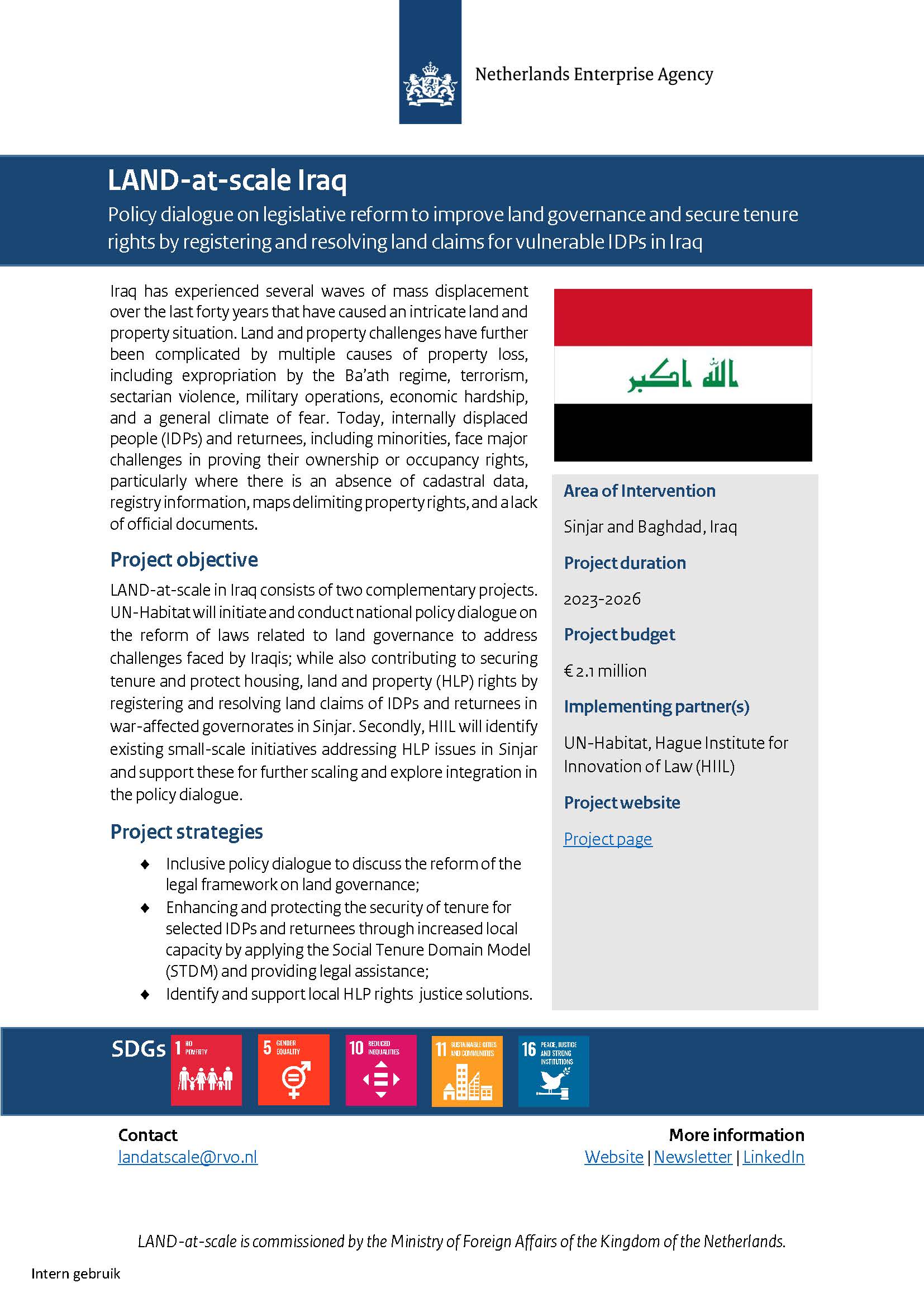Community / Land projects / LAND-at-scale Iraq Policy dialogue on legislative reform to improve land governance and secure tenure rights by registering and resolving land claims for vulnerable IDPs
LAND-at-scale Iraq Policy dialogue on legislative reform to improve land governance and secure tenure rights by registering and resolving land claims for vulnerable IDPs

€2100000
10/23 - 10/25
Active
Implementing Organisations
Donors
Data Providers
Iraq has experienced several waves of mass displacement over the last forty years that have caused an intricate land and property situation. Land and property challenges have further been complicated by multiple causes of property loss, including expropriation by the Ba’ath regime, terrorism, sectarian violence, military operations, economic hardship, and a general climate of fear. Today, internally displaced people (IDPs) and returnees, including minorities, face major challenges in proving their ownership or occupancy rights, particularly where there is an absence of cadastral data, registry information, maps delimiting property rights, and a lack of official documents.
LAND-at-scale in Iraq consists of two complementary projects. UN-Habitat will initiate and conduct national policy dialogue on the reform of laws related to land governance to address challenges faced by Iraqis; while also contributing to securing tenure and protect housing, land and property (HLP) rights by registering and resolving land claims of IDPs and returnees in war-affected governorates in Sinjar. Secondly, The Hague Institute for Innovation of Law (HiiL) will identify existing small-scale initiatives addressing HLP issues in Sinjar and support these for further scaling and explore integration in the policy dialogue.
Three key strategies are employed:
- Inclusive policy dialogue to discuss the reform of the legal framework on land governance;
- Enhancing and protecting the security of tenure for selected IDPs and returneesthrough increased local capacity by applying the Social Tenure Domain Model (STDM) and providing legal assistance;
- Identify and support local HLP rights justice solutions







